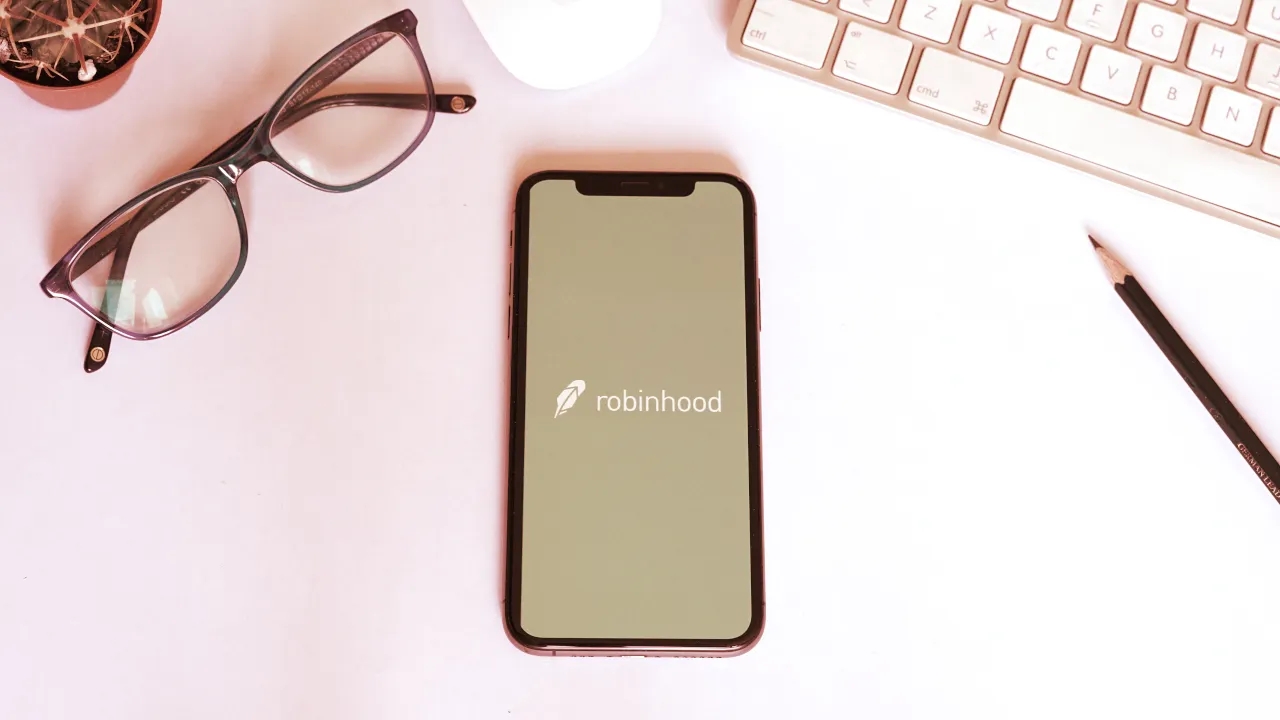In brief
- Buying Robinhood shares provides a way to get exposure to crypto through the stock market.
- Robinhood's crypto ambitions are bigger than most people realize.
The popular stock and crypto buying app Robinhood will offer shares of a new company on Thursday—its own. The company is conducting an initial public offering (IPO), meaning anyone can invest in its stock.
The move is significant not only because Robinhood has become an iconic financial brand, especially among millennials, but because it has also become a major player in the crypto world. Owning shares of Robinhood represents a new way to get exposure to crypto through the stock market—in the same way as owning shares of its competitor Coinbase (the first pure crypto company to go public) or Square.
If you are thinking of investing in Robinhood, here are five useful things to know. And as they say, this is not investment advice.
1. Robinhood reserved up to 35% of IPO shares for customers
This is a big deal since, in the ordinary course of things, only bankers and big investment firms get dibs on shares of a company before it goes public. It means that retail investors will get an opportunity to share in the price "pop" that often happens (but not always!) on the first day shares hit the public markets.
But not everyone who wants to reserve shares will necessarily get them. Robinhood is letting any customer put in a buy request via the "Access IPO" feature on its app, and will then distribute the opportunity by lottery on Thursday morning. The company will distribute up to 18.6 million shares this way.
2. The listing price will be between $38-$42.
Robinhood will reveal the official price of its shares, which will trade under the ticker symbol Hood, on Wednesday night, but the price should be in that range.
The shares will begin trading on the open market on Thursday, probably around mid-day, and anyone will be able to buy them via the Robinhood app or other brokerage platforms like Fidelity or Charles Schwab. Once they start trading, though, the price could go anywhere—and those who bought the reserved shares might make a quick profit or else take a loss.
3. Robinhood's crypto ambitions are bigger than most people realize
Right now, Robinhood's crypto offerings consist of letting customers buy and sell a handful of cryptocurrencies, such as Bitcoin, Ethereum, and Dogecoin. In this sense, it is not that different than PayPal or Square's CashApp, which offer crypto but only in a very limited capacity. You can buy and sell Bitcoin, for example, on these platforms, but you can't transfer it to an external wallet or another exchange.
But by all indications, Robinhood plans to build out its crypto platform to resemble something more like Coinbase, where customers can use their own wallet, dabble in decentralized finance, and so on. The company already has a dedicated crypto unit led by an influential young executive, Christine Brown, who has said she has enormous ambitions for the platform.
The company has around 19 million active accounts, and Robinhood could encourage many of those customers to buy crypto for the first time. Meanwhile, crypto is already a major part of Robinhood's business. In Q1 of this year, 17% of its overall revenue came from crypto—and 6% of it from Dogecoin alone.
4. Robinhood could be a risky investment
Investing in Robinhood early could pay off handsomely in the long term, especially if the company achieves its goals of becoming Charles Schwab for the millennial crowd, and selling them all sorts of other financial products.
But there's no guarantee it will work out this way. Robinhood has a history of technical meltdowns (one as recently as May) and customer service troubles that could lead customers to leave for competitors. The company also keeps getting in trouble with regulators, while some in Congress have issues with with a core part of its business model known as payment for order flow.
Payment for order flow is a process where Robinhood sends batches of customer orders to giant market makers like Citadel Securities and gets a financial kickback in return. Critics say this is deceitful, but many securities experts say the practice benefits customers by letting them get shares at a lower price.
And as the company bets more heavily on crypto, its share price will become more exposed to downturns in the ever-volatile crypto market. Robinhood has acknowledged this, warning crypto revenue will drop later this year, and pointing to its reliance on Doge in particular. The bottom line is that share prices, like crypto, can crash—and this could happen to Robinhood.
5. Robinhood has already turned a profit
While buying Robinhood stock comes with plenty of risk, as noted above, would-be investors can be encouraged by the fact that it has shown it is able to make money, squeezing out a modest profit in 2020.
This is significant given that many of the hottest companies to public in recent years, such as Uber or DoorDash, were losing gobs of money at the time of their IPO—and have gone on to lose even more money, which has hurt their share price and left investors with a sour taste. This is not the case with Robinhood since it has already proved it can make money. But the company will face pressure to show that it can keep doing so in the future.
Disclaimer
The views and opinions expressed by the author are for informational purposes only and do not constitute financial, investment, or other advice.

